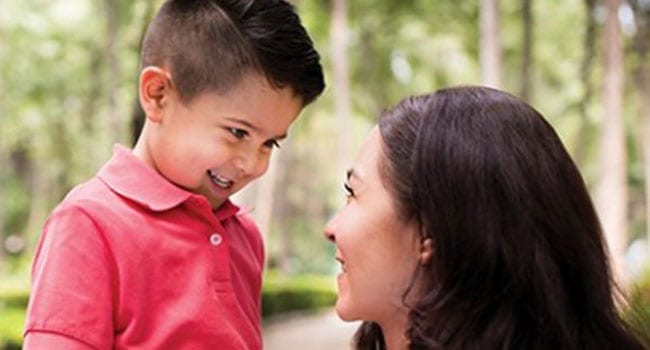 About one in 68 children has been identified with an autism spectrum disorder (ASD) according to data collected by the U.S. Centers for Disease Control and Prevention (one in 42 boys). ASD often includes those with a wide range of challenges and abilities, including linguistic, social and sensory impairment, along with fine motor and gross motor challenges, and digestive issues.
About one in 68 children has been identified with an autism spectrum disorder (ASD) according to data collected by the U.S. Centers for Disease Control and Prevention (one in 42 boys). ASD often includes those with a wide range of challenges and abilities, including linguistic, social and sensory impairment, along with fine motor and gross motor challenges, and digestive issues.
No matter the level of severity, all kids with ASD often require extra medical, educational, dietary and/or emotional assistance, which may mean their families could really use a helping hand.
You want to help out, right? But it’s not always clear how best to do so. Here’s how you – as a family member, friend, neighbour or even just as a friendly acquaintance or concerned citizen – can help families affected by autism.
Time: There’s never enough time in the day for parents juggling work and family life, along with the medical and therapy appointments necessary for kids with special needs. So giving the gift of time is one of the best options.
You can do this simply by shovelling their driveway, raking their leaves or weeding their garden, depending on the season. Bringing them freshly-baked goods or home-cooked meals (make sure you are aware of any dietary restrictions first) is always welcome. Offering to drive to appointments, babysitting their other kids, picking up a prescription or some groceries or running other errands could be the little bit of assistance they need to make it through the day.
These are all things that take very little of your time and effort, but can save plenty of their time – time they can spend with their child or catching up on work, or better yet, sleep.
Words: Many families struggling with the duties required to meet the special needs of their child may be perpetually near exhaustion. So if they’ve not been chatty or have been churlish in the past – let it go.
Offering kind and friendly words of support and friendship can also go a long way to making their day brighter. Take the time to really ask how they are doing, and ask how you can help. Resist the temptation to offer advice, and be a good listener instead.
Remember to invite them out periodically, even if they’ve often refused in the past. When the social invitations stop coming is when families feel most isolated.
Most important of all: let them know what good parents they are when you see it in action. It’s more than likely that they don’t hear it often enough.
Money: If you are a relative or close friend of the family, use birthdays and other special events as a way to ask if you can contribute to the child’s RDSP (Registered Disability Savings Plan) or RESP (Registered Educational Savings Plan); the government often matches contributions, so a little bit can go a long way to helping the child’s future. Or you could provide practical gift certificates, such as to a book store or office supply store or special needs toy store, along with a small gift for the child, to support the child’s educational needs.
Regular donations to a charity that deals with autism is a great way to help out anonymously. Too often these charities survive on shoe-string budgets, or on donations from families already affected – those least able to spare the extra money. So your donation can make a big difference.
If you don’t know the best charity to donate to, don’t be afraid to ask around: families affected by autism know which charities help out most and may have favourites to refer you to. Here’s a tip: national charities often address policy and important advocacy issues and local charities often deal with front line services in your community – both can use the extra money. And if you don’t have extra money, ask the charity how you can volunteer your time instead.
The old axiom that action speaks louder than words is a good one to keep in mind. Quit wishing you could help out a family coping with the responsibilities of a special needs child, and do something instead. Sometimes it is those small gestures that can make all the difference to someone’s day.
Kathleen O’Grady is a Research Associate at the Simone de Beauvoir Institute, Concordia University, Montréal, and a political and media strategist, with clients in government, think tanks and NGOs. She has two sons, one with autism.
Kathleen is a Troy Media Thought Leader. Why aren’t you?
The views, opinions and positions expressed by columnists and contributors are the author’s alone. They do not inherently or expressly reflect the views, opinions and/or positions of our publication.


